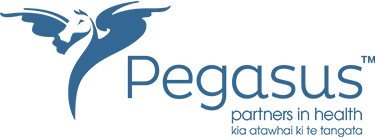The National Cervical Screening Programme (NCSP) recently introduced new options for how cervical screening is done in New Zealand. From the 12th of September, a new self-test was introduced, giving wāhine and people with a cervix, more options for cervical screening.
In Aotearoa New Zealand, 85% of people who develop cervical cancer have either never been screened or have not had regular screening. With the recent changes, the NCSP aims to reach more people and save more lives.
The cervical screening tests available are:
- self-test,
- self-test with assistance from a trained professional,
- liquid based cytology-test (previously referred to as a smear test).
Primary Care Nurse, Melanie Taylor, led the mahi at Piki te Ora Health Centre who were part of the Human Papillomavirus (HPV) pilot programme. Piki te Ora Health Centre have a high priority population. Melanie had high praise for the pilot programme.
“It was great! We screened so many wāhine that haven’t been screened before or hadn’t been screened for more than 5 years. During the pilot programme we recalled 500 people, and screened 197, which we were thrilled with as our aim was to screen 200. We’ve got a really good group of passionate screeners here which makes a difference,” she said.
While Piki te Ora Health Centre noticed a slight drop off in screening after the pilot programme ended, the uptake has continued to rise now the rollout is live.
“We felt encouraged to have wāhine coming in after the pilot finished for their screening for the self-test. We ended up collating a list of wāhine and once the rollout went live we invited them back to be screened,” Melanie said.
“Since the rollout there has been a surge of priority groups opting for the new HPV self-test. Self-testing is an essential tool to help increase cervical screening rates, both to close the equity gap and to move closer to the government target of 80%, as we work toward eliminating cervical cancer,” Pegasus Health Population Health Specialist, Anna Thorpe, said.
Having three options for testing was also highly commended by Melanie. “Though most people go to the wharepaku to do a self-test, some people will ask for the clinician to do the swab,” she said.
—
As of the 12 September 2023, free cervical screening is now available for the following groups:
- Women and people with a cervix 30 years and over who have never had a screening test, or have not had a test in the past 5+ years
- Anyone requiring a follow up
- Māori and Pacific
- Anyone who is a Community Services Card holder.
Tips from Melanie
- The most important thing is a person’s understanding and making sure they are comfortable. Ensure that you adjust the conversation for their health literacy.
- At the beginning of the consult ask the question ‘Do you have any special names for your vagina?’ Then throughout the consult, continue to use that word so the person feels safe and respected.
- Instructions are provided for each kit; however, it can be easier to talk through the process. Asking questions such as, ‘Have you used a tampon or a self STI swab before?’, can help to ease hesitancy around self-testing.

